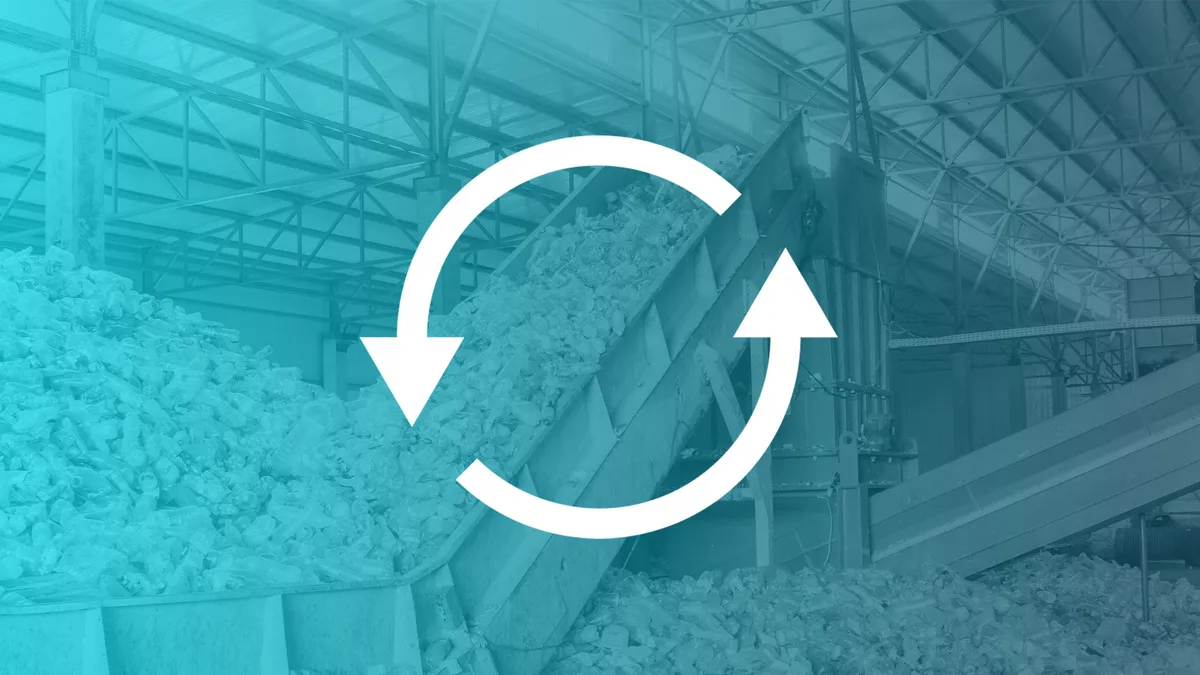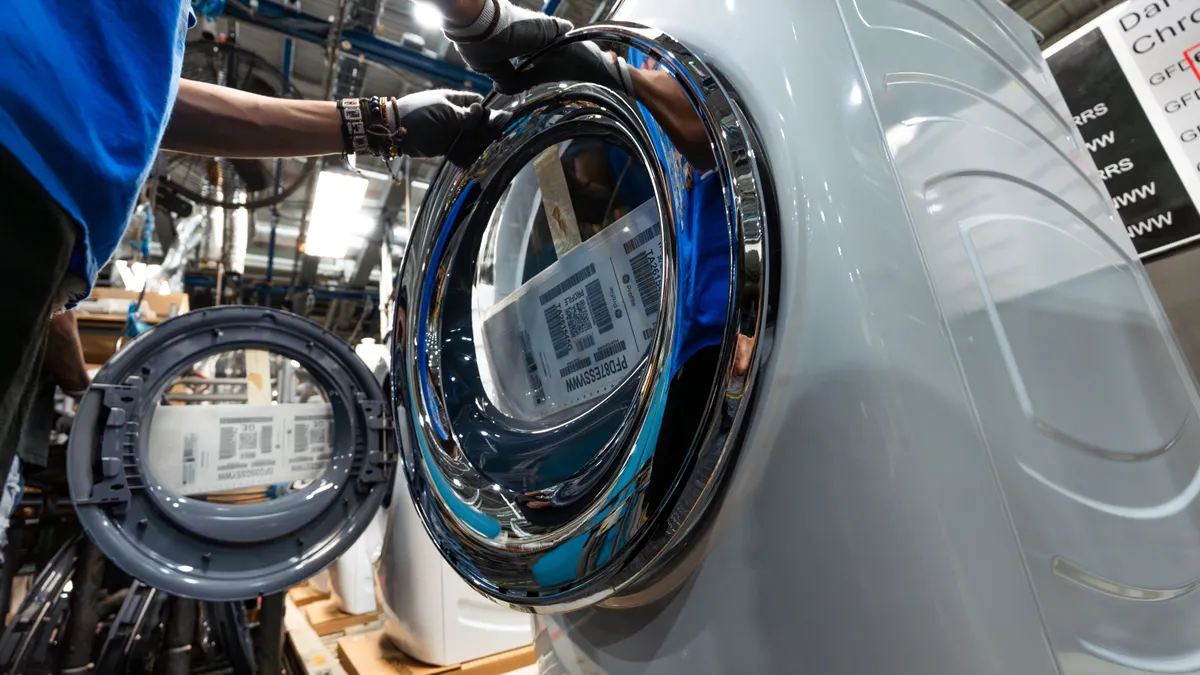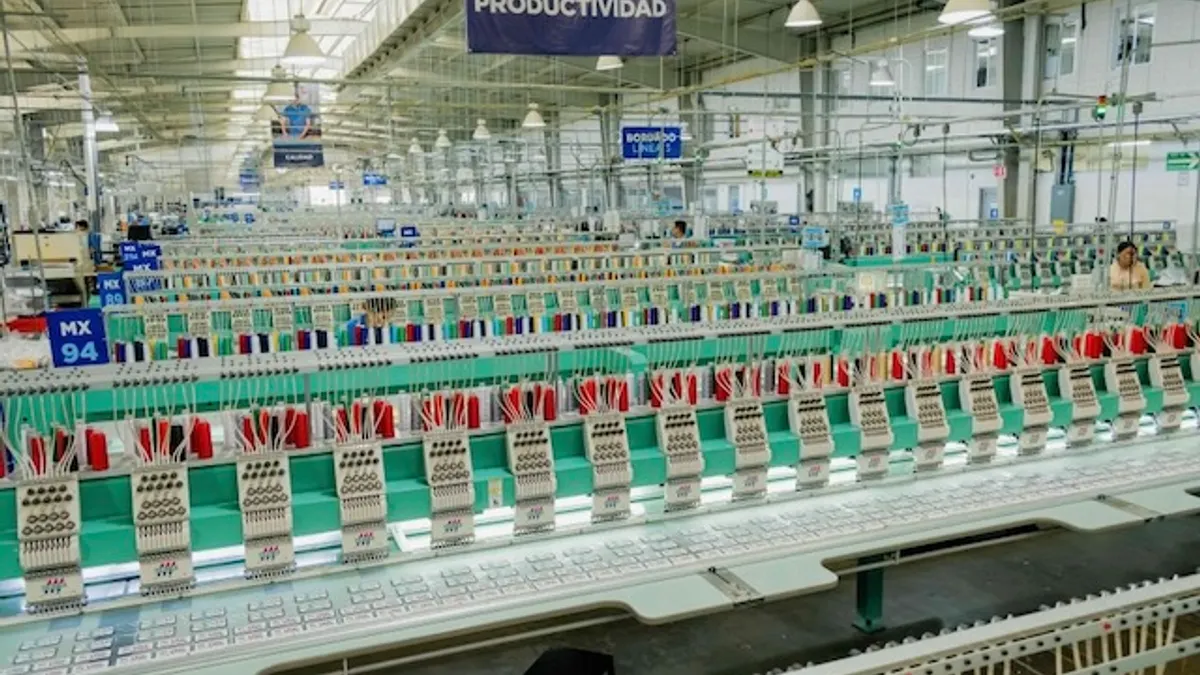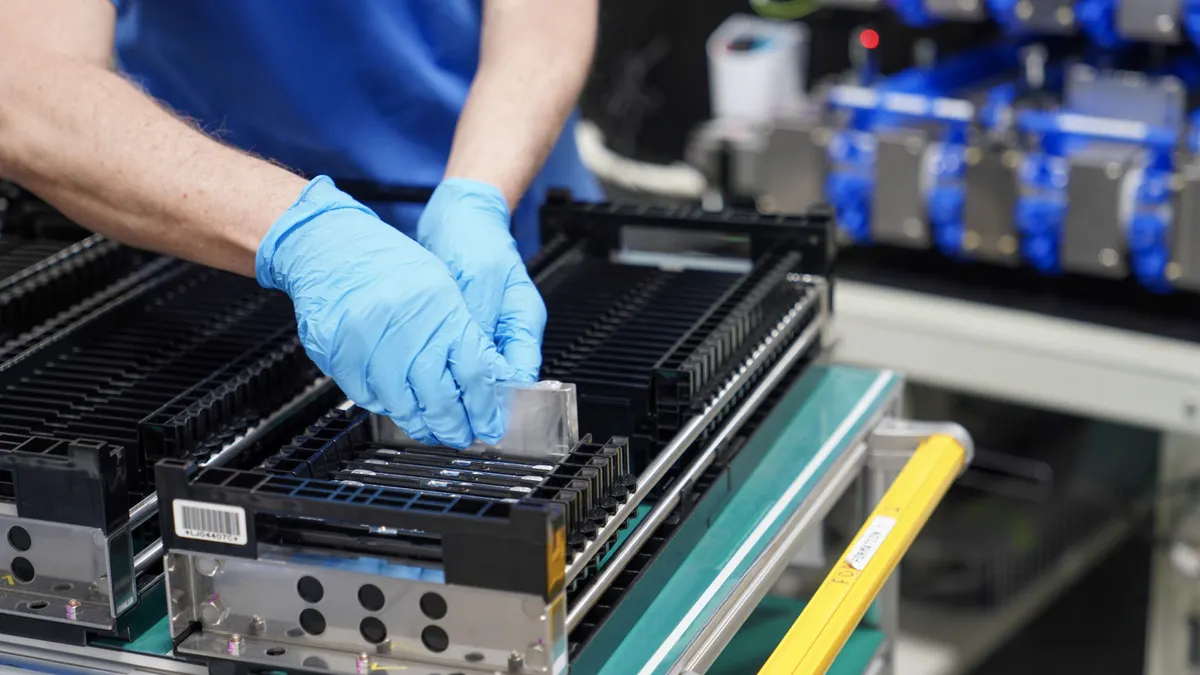For months, Nabil Nasr has been designing medical equipment to help shore up lacking supplies in the state of New York. Nasr, a remanufacturing expert with the Rochester Institute of Technology (RIT), doesn’t normally spend too much time with medical professionals. But his team has designed and tested an emergency ventilator as well as a filter and shield combo that replaces N95 masks.
He’s also seen how much waste medical care creates. In a fast-moving, understaffed crisis, medical facilities produce lots of trash or at least items that may not be easily recyclable. "This is going to generate a lot more waste than we’re used to," said Nasr, associate provost and director of the Golisano Institute for Sustainability at RIT. "A lot of what’s going to be produced will be the toughest things to recycle."
Even while Nasr makes these observations, his remanufacturing and circular economy colleagues are anticipating an increased need for recycling. Some are targeting the healthcare sector specifically while others think the coronavirus crisis highlights how essential recycling and reuse can be for other industries struggling to cope with ruined supply chains. All this upheaval could reveal how circularity may serve everyone better than pre-pandemic protocol did, experts say.
The global net that used to hold trade together was intricate, Keefe Harrison, CEO of The Recycling Partnership, recently told Waste Dive. Much of that recycling system was already in flux as people adjusted to recent changes in international trade policy while also facing constant pressure from the often simpler and cheaper option of disposal. "With an added strain like coronavirus, you can see some fissures pretty fast," Harrison said.
Healthcare challenges and opportunities
Stunted (or overwhelmed) supply chains partially explain why many feel "reuse" has become integral to coping with this pandemic.
"Anytime there’s a resource-constrained situation, it’s important to extend the lifespan of products," said Stephanie Potter, executive director of sustainability and circular economy with the U.S. Chamber of Commerce Foundation, in late April.
The organization works with businesses, including those in healthcare, to help them pursue circular economy practices. For example, mask shortages prompted interest in sanitizing N95 masks with vaporized hydrogen peroxide, a technology Potter highlighted in an April op-ed about pandemic-related circularity implementation. More recent concerns from some in the healthcare sector about that process have emerged, showing how tricky it can be to fit circularity or reuse into medicine.
"The hurdle has, and will continue to be, how to ensure standards of safety are upheld and that medical staff have a comfort level in reusing decontaminated PPE," Potter said.
Safety and sanitation goals are already a challenge with a new virus, Nasr pointed out, when researchers don’t know much about where the pathogen survives and for how long. Adding the possibility of "reuse" for products can make this additionally complicated.
Still, manufacturers believe they have to try. At the end of March, the National Institute of Standards and Technology announced a funding pool for "rapid, high-impact projects" to help the United States approach the pandemic. Members of the REMADE Institute, a coalition of public and private research groups led by Nasr that aims to promote reuse in the U.S. manufacturing industry, are eligible to apply. Nasr said REMADE staff had been talking with members about potential ideas and whether the program could put together a funding request.
Interventions with this type of large, expensive equipment might be an easier way to incorporate reuse into hospitals, Potter said, as some machines have less contact with people than, say, a scalpel. And Nasr thinks there will be plenty of remanufacturing and restoration needs once the pandemic is over. Many ventilators made for desperate hospitals will get put in storage, for example, and someone will have to figure out how to keep them in good condition in case the machines need to get rolled out again.
A more circular future
Reuse might be a future need in some industries — but others have to adopt its companion, recycling, even more quickly.
Wayne Gjerde, recycling market development coordinator with the Minnesota Pollution Control Agency, has been checking in on the paper mills in his state that produce packaging for General Mills, Pillsbury and other food suppliers. Those manufacturers still need raw materials to meet customer demand and higher grocery store sales, he said. Residents are also moving forward with at-home construction projects, and regional suppliers of plastic or wood-composite lumber still need those supplies.
Recycling fills those supply chain needs, and importantly, keeps paper mills and other manufacturing facilities open, according to Gjerde. If existing paper mills or other plants close, they rarely if ever reopen and the alternative to recycling doesn’t provide as much opportunity for employment.
"Yes, there are jobs at landfills, but there are less of those jobs than in manufacturing," he said.
In Gjerde's view, recycled supplies can buoy the plants and provide the high-paying, good-benefit manufacturing jobs states want so badly. A few months into this health crisis, Minnesota facilities have started experimenting with newly-incorporated recycled materials, with one egg carton producer taking in mixed paper and one mill pumping out more cardboard boxes with post-consumer fibers.
"It’s all about the environment, but it’s all about the money too," Gjerde said.
Bottom lines have pushed other private businesses to consider circularity during the pandemic, too. A Closed Loop Partners webinar led by Danielle Joseph, executive director of Closed Loop Ventures, walked through the changes some companies have seen since industry has begun soliciting more of their products as a solution to supply chain woes.
AMP Robotics is one of those suppliers. During the pandemic, interest in the company's product — robots that pluck out particular items from the recycling stream — has increased amid concerns around worker safety at MRFs during the pandemic. Recycling itself has to continue, however, and manufacturers have been cut off from global supply networks while shifting production to needs such as manufacturing more shipping boxes.
"It’s a big deal if you can’t get ahold of enough cardboard or ahold of enough toilet paper — as silly as that sounds — and the recycling industry is really stepping in and helping mitigate some of these significant supply chain challenges," said CEO Matanya Horowitz during the April 29 webinar.
For companies that can’t suddenly pivot their production, reuse could also help salvage sales. Clothing retailers filled warehouses with what is now an oversupply of spring/summer collections, said Nicole Bassett, co-founder of The Renewal Workshop, a company that helps brands turn discarded clothing into new products.
Some of these retailers have been considering disposing their inventory — and forfeiting profits — but ideally, companies would reuse it. That’s why Bassett has fielded calls from several large brands since the pandemic started, she said on the webinar. A plan reliant on continuously "selling more" doesn’t cope well with major disruptions, Bassett said, whereas remanufacturing and other circularity concepts provide more stability in the long run.
"We started the Renewal Workshop knowing that the industry was going to get disrupted at some point. In the early days, we thought it was because of climate change and access to resources, and it was just going to get too expensive," said Bassett. "So in a very odd way, we are forcing the conversation much faster."
In light of the pandemic, the Recycling Partnership co-authored a letter to Congress suggesting the previously proposed RECOVER Act funding be expanded to $1 billion to support the U.S. recycling system. If current recycling infrastructure gets abandoned, it will be very challenging to build back up, Keefe said.
All of this pressure comes as recycling access in the U.S. has deteriorated in certain ways, REMADE's Nasr said, and the balance between reuse and disposal could shift in a post-pandemic world. Single-use items, like the stretchy plastic gloves that gum up recycling facilities, could boom when people are hyper-concerned about sanitation. But he thinks maybe the initial scarcity of masks and ventilators will remind people that the rules of supply and demand apply to natural resources, too.
"We need to make sure that we have the right balance in our system," said Nasr, "in terms of air quality, in terms of having the right material for us to beat — or to be able to deal with — a pandemic."























